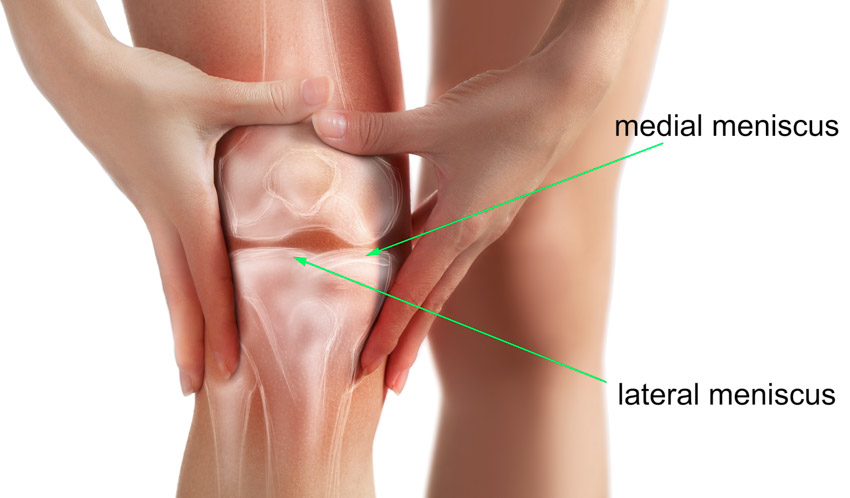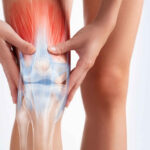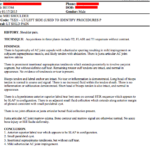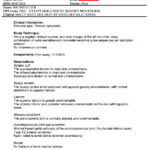Meniscus Tears
A meniscus is a disk-shaped piece of cartilage that acts as a shock absorber inside a joint. Each knee has one lateral meniscus under the outer knob of the thighbone and one medial meniscus under the inner knob of the thighbone.
Both the lateral and medial meniscus acts as a natural cushion between the thigh bone (femur) and the shin bone (tibia). The two cushions prevent excess wear and tear inside the knee joint by keeping the ends of the two bones from rubbing together.
Each meniscus also absorbs much of the shock of jumps and landings and helps to distribute joint fluid evenly to lubricate and nourish the knee.

You’ve probably heard of athletes with this type of injury, however, you don’t have to be an athlete to get a meniscus tear. Simply getting up too quickly from a squatting position can also cause a meniscal tear. Your meniscus can be damaged or torn during activities that put pressure on or rotate the knee joint.
Depending on the severity of your injury, treatment options can vary. Ohio Healthcare Partners treats partial meniscus tears in our office.
No matter how a torn meniscus knee injury occurs, everyone wants the same result – fast healing and recovery.
Non-Surgical Treatment Options for Torn Meniscus knee injuries at Ohio Healthcare Partners
Regenerative Therapy Options available:
Platelet-Rich Plasma Injections/PRFM
Platelet-rich plasma (PRP) has been used since the 1970s in medicine for multiple purposes. The last decade has seen a tremendous focus on PRP applications in musculoskeletal medicine. The potential for PRP to promote tissue healing following injury or disease is attractive to many physicians, researchers, and patients alike.
- Platelet-rich plasma (PRP) injections administer concentrated platelets from the patient’s own blood into damaged cartilage and tendons to reduce pain and to aid in the healing process.
- PRP rebuilds these tissues and can be used for common tendon injuries, such as tennis elbow, and to repair cartilage due to osteoarthritis or other damage.
- PRP injections consist of extracting a blood sample, concentrating the platelets, and injecting them into injured areas of the body.
- PRP injections are sometimes performed in a series, but many patients only require one injection to see results.
Dr. Lauchlin McKeigan, Chiropractic Physician at our sister office in Shaker Square, Eastside Medical Group, has seen firsthand the positive healing effects of PRP treatment in his shoulder tear.
Amniotic Fluid Matrix Allograft*
This new breakthrough treatment option provides pain relief and healing without the risks of surgery, general anesthesia, hospital stays, or prolonged recovery and downtime from life.
- Acellular, frozen, non-irradiated, 100% pure amniotic fluid matrix allograft
- Retains its bioactivity with more than 200 growth factors proven present
- Membrane and chorion free
- Able to be injected through as small as a 30 gauge needle
Umbilical Cord Matrix / Wharton’s Jelly Allograft*
Umbilical Cord Matrix/Wharton’s Jelly Allograft contains growth factors and an abundant amount of live nucleated cells, including mesenchymal stem cells that secrete anti-inflammatory and immunomodulatory properties that optimize the cellular environment in a joint to assist in advanced healing.
- Donors are selected following an intensive and complete medical review and pre-natal evaluation prior to delivery
- Contains a dynamic environment consisting of a variety of growth factors, cytokines, scaffolding, hyaluronic acids, mesenchymal stem cells, and chemokines
- Derived exclusively from the umbilical cord after healthy delivery of a baby
- Immune-privileged so there is no chance of rejection.
For now, most of these Regenerative Therapies are not covered by insurance, although some insurance providers, including Workers’ Comp, are starting to cover a portion of the price on a case by case basis.
Symptoms of a meniscus tear
 When a meniscus tear occurs, you may hear a popping sound around your knee joint. Afterward, you may experience any or all of the following:
When a meniscus tear occurs, you may hear a popping sound around your knee joint. Afterward, you may experience any or all of the following:
- pain, especially when the area is touched
- swelling around the knee joint
- difficulty moving your knee or inability to move it in a full range of motion
- feeling as if your knee is locking or catching
- feeling as if your knee is giving way or unable to support you
You may also experience a slipping or popping sensation, which is usually an indication that a piece of cartilage has become loose and is blocking the knee joint.
Contact Ohio Healthcare Partners right away if you experience any of these symptoms and if they persist for more than a few days or occur after your knee has been injured.
Diagnosis
Our knowledgeable and experienced medical staff will inspect both your knees to compare your injured knee with your uninjured one. They will check your injured knee for signs of swelling, tenderness, and fluid inside the knee joint.
If your knee is not locked, the doctor will bend your injured knee and check for clicks, snaps, and “catches” within the joint. They also will evaluate your knee’s range of motion and will maneuver your knee to see whether your meniscus is sensitive to pressure.
If the results of your exam suggest you have a torn meniscus, you may need more tests, including:
Knee X-rays — to check for bone injuries as well as osteoarthritis. It is helpful to determine if there are any other issues that can cause symptoms similar to a torn meniscus
MRI, with or without contrast — An MRI uses a magnetic field to take multiple images of your knee. An MRI will be able to take pictures of cartilage and ligaments to determine if there’s a meniscus tear.
Depending on the severity of your injury, treatment options can vary. Ohio Healthcare Partners treats partial meniscus tears in our office.
If your torn meniscus knee injury is caused by a work-related injury, Ohio Healthcare Partners is an Ohio Bureau of Workers’ Compensation certified provider.
We combine all of our knee therapy treatment plans with a combination of comprehensive therapeutic exercises, chiropractic care, and medical-massage to achieve maximum results with our program!
To learn more about our treatment programs for a torn meniscus and to see if you are a candidate for Regenerative Therapy, contact our team at Ohio Healthcare Partners.





